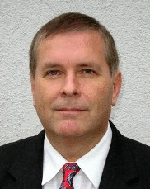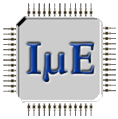 |
|
Biography
Siegfried Selberherr was born in Klosterneuburg, Austria, in 1955. He received the degree of Diplomingenieur in electrical engineering and the doctoral degree in technical sciences from the Technische Universität Wien in 1978 and 1981, respectively. Prof. Selberherr has been holding the venia docendi on Computer-Aided Design since 1984. From 1988 to 1999 he was the Head of the Institute for Microelectronics. From 1998 to 2005 he served as Dean of the Faculty of Electrical Engineering and Information Technology. His current research topics are modeling and simulation of problems for microelectronics engineering.
Preface
Welcome to the Institute for Microelectronics' twenty-sixth annual research review! The staff, financed by the new Austrian Federal Ministry of Science, Research and Economy, has increased once more compared to numbers two years ago. The current staff consists of eight full-time and four part-time employees: four professors, two full-time and three part-time scientists, a secretary, and one part-time and one full-time technical assistant. The three part-time scientists financed by the federal budget have been upgraded to full employment with funds from scientific projects. In addition, twenty-seven scientists and one part-time technical assistant are presently funded through projects supported by our industrial partners, the Austrian Science Fund (FWF), the Christian Doppler Gesellschaft (CDG), and by projects within the EC Framework Programme. Most of our separately funded scientists are also working towards their doctoral degrees. Thus, compared to the previous report, the number of additionally funded members of the institute is quite stable.
During the last year, two projects within the Information Society Technologies (IST) program have been initiated, namely, ATHENIS_3D ("Automotive Tested High Voltage and Embedded Non-Volatile Integrated System on Chip platform employing 3D Integration") and MoRV ("Modelling Reliability under Variability"). The project MOSILSPIN (an Advanced Grant from the European Research Council), the IST projects MORDRED, NanoHiTEC and SUPERTHEME, the Christian Doppler Laboratory on "Reliability Issues in Microelectronics" as well as seven projects funded by the Austrian Science Fund are continuing according to plan where one of the latter started in the reporting period. We are very glad that our industrial partners have continued their cooperation, and happy to announce the initiation of new projects.
We are very proud of the high academic and scientific output that our institute is producing and this is reflected by the respectable number of long-term projects and the all-time high number of publications, especially contributions to and participation in international conferences. However, we are aware that this success is based considerably on our cooperating partners within academia and industry. Therefore, we would like to explicitly express our gratitude for their trust in our scientific work. In this sense, we are entering the next year of our institute, as ever, with high expectations.



